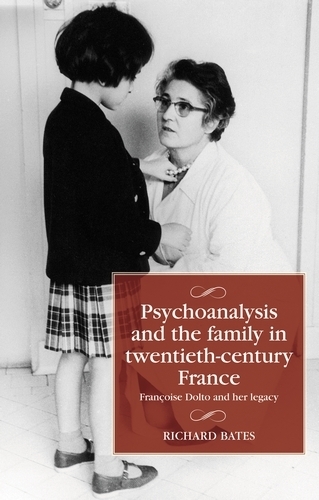
Psychoanalysis and the Family in Twentieth-Century France: FranOise Dolto and Her Legacy
(Hardback)
Publishing Details
Psychoanalysis and the Family in Twentieth-Century France: FranOise Dolto and Her Legacy
By (Author) Richard Bates
Manchester University Press
Manchester University Press
8th February 2022
United Kingdom
Classifications
General
Non Fiction
History of medicine
Psychoanalytical and Freudian psychology
150.195092
Physical Properties
Hardback
280
Width 138mm, Height 216mm, Spine 17mm
472g
Description
This book examines the life and career of popular French psychoanalyst Franoise Dolto (190888). It connects her rise to two broader histories: the dramatic growth of psychoanalysis in postwar France and the long-running debate over the family and the proper role of women in society.
In the last quarter of the twentieth century, if French people had a parenting problem or dilemma there was one person they consulted above all: Franoise Dolto (190888). But who was Dolto How did she achieve a position of such influence What ideas did she communicate to the French public This book connects the story of Doltos rise to two broader histories: the dramatic growth of psychoanalysis in postwar France and the long-running debate over the family and the proper role of women in society. It shows that Doltos continued reputation in France as a liberal and enlightened educational thinker is at best only partially deserved and that conservative and anti-feminist ideas often underpinned her prominent public interventions. While Dolto retains the status of a national treasure, her career has had far-reaching and sometimes harmful repercussions for French society, particularly in the treatment of autism.
Reviews
Richard Batess cultural history of the life and work of Franoise Dolto establishes her rightful place at the centre of the psychoanalytic revolution in twentieth-century France, stressing her significant influence on the broader popularity of psychoanalysis and the manner that French parents navigated social transformations after the Second World War. A must-read to understand the intersection of gender, family and disability in French psychoanalysis.
Jonathyne Briggs, Professor of History, Indiana University Northwest
Author Bio
Richard Bates is a Teaching Associate in History at the University of Nottingham
